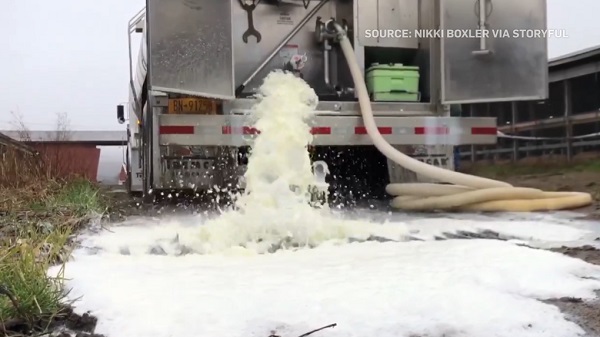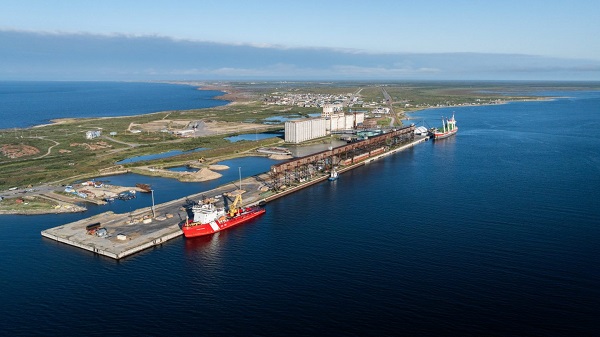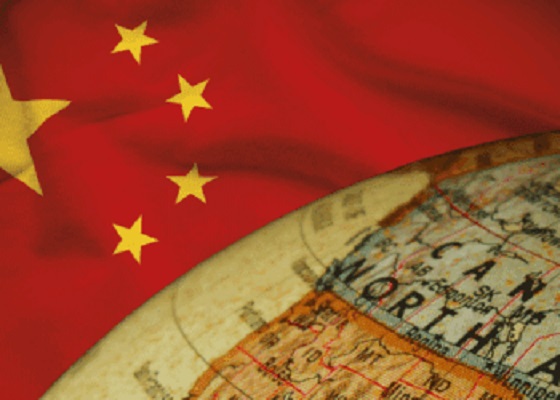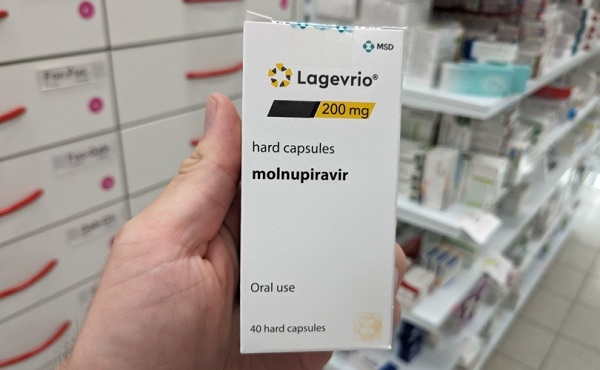Agriculture
Time to End Supply Management

From the Frontier Centre for Public Policy
According to a 2021 report from the Montreal Economic Institute, Canadian families pay up to $600 more per year on dairy products alone due to supply management.
The New Democrats and the Liberals have pledged to tackle inflation, curb price gouging, and address child poverty. Leaders like Jagmeet Singh have railed against corporate greed while Prime Minister Justin Trudeau’s government has introduced programs claiming to feed your children.
But despite these announcements, food affordability remains a serious problem in Canada. If our political leaders are truly committed to making nutritious food accessible for all Canadians, they must confront the largely ignored factor: Canada’s supply management system.
Supply Management Hurts Families
Supply management, which governs the production and pricing of dairy, eggs, and poultry in Canada, was designed to stabilize farmers’ incomes. However, it now acts as an unnecessary burden on consumers, artificially inflating the cost of essential food items. Farmers are given strict quotas on how much they can produce, and sky-high tariffs—often more than 200%—are imposed on imports.
This creates a closed market that keeps prices far higher than in a free-market system. According to a 2021 report from the Montreal Economic Institute, Canadian families pay up to $600 more per year on dairy products alone due to supply management. This is no small sum to households already feeling the pinch.
To put it in perspective, a litre of milk in Canada costs between $1.50-$2.50, compared to USD 1.00 (around $1.35 CAD) in the United States, where such market controls don’t exist. The cost of other staples, such as eggs and chicken, follows the same pattern, with Canadians paying significantly more than their American counterparts.
These artificially high prices disproportionately affect families struggling. As inflation continues to drive up the cost of housing, fuel, and other essentials, paying extra for basic food becomes the tipping point between having three meals a day or skipping meals to cover rent or bills.
The Conservative Opportunity: Free Markets and Family Values
The Conservative Party has historically championed free markets and policies promoting family well-being, but they also support the food cartels.
In a genuinely free market, prices are determined by supply and demand, leading to lower consumer costs and more production efficiency. Ending supply management would achieve both goals.
While Conservatives have long supported free markets, they have been reluctant to challenge supply management, largely due to political concerns in Quebec, where the system is popular among producers. Being pro-trade and supporting supply management are incongruous political positions.
However, with the Conservatives drawing closer to forming government, potentially without significant electoral support from Quebec, now is the time for a strategic shift. Shedding the protectionist policies would be a bold and forward-thinking move to distinguish the party as serious about free markets and family welfare.
It would also send a powerful message to voters across the country, particularly in regions where food insecurity is rising. Conservatives could frame the policy change as a direct effort to reduce food prices, ease the burden on low-income families, and protect Canadian consumers from the high costs supply management imposes.
The Ethical Case: Dumping Food While Canadians Go Hungry
Perhaps the most shocking aspect of supply management is the appalling waste it produces. To keep prices high, in 2023 alone, tens of millions of litres of milk were discarded—wasted food that could have gone to Canadians in need. This is an unconscionable practice in a country where nearly 2 million people rely on food banks to survive. How can wasting food while so many families struggle to afford basic groceries be justified?
This waste flies in the face of compassion and fairness, and contradicts the principles of a free market.
The Bloc Quebecois’ Game
Given that the significant dairy industry in Quebec benefits immensely from supply management, the Bloc Quebecois is seeking to leverage the weakness of the Trudeau minority in exchange for a Bloc bill, Bill C-282, that would shield supply management from future changes. The Bloc Québécois Bill C-282 wants to amend the Trade and Development Act. Reportedly, it has support from all parties in Parliament.
One of the key setbacks is the restriction supply management places on open market access. It hinders the ability to fully embrace free trade agreements. A primary objectives of Bill C-282 is to prevent the Canadian government from making concessions in international trade agreements that could undermine the supply management system. This is particularly relevant in trade negotiations where foreign countries often seek increased access to Canada’s agricultural markets.
Consequently, this limits the potential for growth in agricultural exports. Central Canada benefits the most from supply management, and although its trade reverberations hurt everyone, they seem to hurt Western producers the most.
A Call to Action for All Parties
For New Democrats and Liberals, the solution to supporting families and children through food affordability lies in targeting alleged corporate greed and expanding social programs. But if they are serious about addressing child poverty and food insecurity, they would confront supply management. Likewise, for Conservatives, ending supply management is a natural extension of their free-market impetus and commitment to family values.
The time for change is now. Regardless of party, all political leaders should recognize that dismantling supply management would be a direct, meaningful step toward making food more affordable for all Canadians, as well as maximizing agricultural chances to expand Canada’s exports. With the rising cost of living pushing more families into food insecurity, we cannot afford to let outdated policies continue to inflate prices, immorally perpetuate waste, and curtail chances for greater growth in Agrifoods.
Dismantling supply management would offer tangible relief to millions of Canadian consumers, particularly low-income families. All other parties should start by killing Bill C-282.
Marco Navarro-Génie is the Vice President of Research at the Frontier Centre for Public Policy
Agriculture
Lacombe meat processor scores $1.2 million dollar provincial tax credit to help expansion

Alberta’s government continues to attract investment and grow the provincial economy.
The province’s inviting and tax-friendly business environment, and abundant agricultural resources, make it one of North America’s best places to do business. In addition, the Agri-Processing Investment Tax Credit helps attract investment that will further diversify Alberta’s agriculture industry.
Beretta Farms is the most recent company to qualify for the tax credit by expanding its existing facility with the potential to significantly increase production capacity. It invested more than $10.9 million in the project that is expected to increase the plant’s processing capacity from 29,583 to 44,688 head of cattle per year. Eleven new employees were hired after the expansion and the company plans to hire ten more. Through the Agri-Processing Investment Tax Credit, Alberta’s government has issued Beretta Farms a tax credit of $1,228,735.
“The Agri-Processing Investment Tax Credit is building on Alberta’s existing competitive advantages for agri-food companies and the primary producers that supply them. This facility expansion will allow Beretta Farms to increase production capacity, which means more Alberta beef across the country, and around the world.”
“This expansion by Beretta Farms is great news for Lacombe and central Alberta. It not only supports local job creation and economic growth but also strengthens Alberta’s global reputation for producing high-quality meat products. I’m proud to see our government supporting agricultural innovation and investment right here in our community.”
The tax credit provides a 12 per cent non-refundable, non-transferable tax credit when businesses invest $10 million or more in a project to build or expand a value-added agri-processing facility in Alberta. The program is open to any food manufacturers and bio processors that add value to commodities like grains or meat or turn agricultural byproducts into new consumer or industrial goods.
Beretta Farms’ facility in Lacombe is a federally registered, European Union-approved harvesting and meat processing facility specializing in the slaughter, processing, packaging and distribution of Canadian and United States cattle and bison meat products to 87 countries worldwide.
“Our recent plant expansion project at our facility in Lacombe has allowed us to increase our processing capacities and add more job opportunities in the central Alberta area. With the support and recognition from the Government of Alberta’s tax credit program, we feel we are in a better position to continue our success and have the confidence to grow our meat brands into the future.”
Alberta’s agri-processing sector is the second-largest manufacturing industry in the province and meat processing plays an important role in the sector, generating millions in annual economic impact and creating thousands of jobs. Alberta continues to be an attractive place for agricultural investment due to its agricultural resources, one of the lowest tax rates in North America, a business-friendly environment and a robust transportation network to connect with international markets.
Quick facts
- Since 2023, there are 16 applicants to the Agri-Processing Investment Tax Credit for projects worth about $1.6 billion total in new investment in Alberta’s agri-processing sector.
- To date, 13 projects have received conditional approval under the program.
- Each applicant must submit progress reports, then apply for a tax credit certificate when the project is complete.
- Beretta Farms has expanded the Lacombe facility by 10,000 square feet to include new warehousing, cooler space and an office building.
- This project has the potential to increase production capacity by 50 per cent, thereby facilitating entry into more European markets.
Related information
Agriculture
Unstung Heroes: Canada’s Honey Bees are not Disappearing – They’re Thriving

Canada’s Bee Apocalypse began in 2008. That was the year the Canadian Association of Professional Apiculturists (CAPA) first reported unusually high rates of winter bee colony losses. At 35 percent, the winter die-off that year was more than twice the normal 15 percent rate of attrition.
“Successive annual losses at [these] levels … are unsustainable by Canadian beekeepers,” the CAPA warned. This set off an avalanche of dire media reports that now appear on a regular basis. Among the many examples over the years: Huge Honey Bee Losses Across Canada” and “Canada’s bee colonies see worst loss in 20 years”. As each of these stories reminds readers, the disappearance of honey bees will doom our food supply, given their crucial role in pollinating crops including canola, soyabeans, apples, tomatoes and berries.
This year the black-and-yellow striped Cassandras are back at work, with headlines shouting “Scientists warn of severe honeybee losses in 2025” and “The Bees are Disappearing Again”. If it’s spring, the bees must be disappearing. Again.
It is, however, mathematically impossible for any species to be in an allegedly continuous and calamitous state of decline over nearly two decades and never actually reduce in number. For despite the steady supply of grave warnings regarding their imminent collapse, Canada’s bees are actually buzzing with life.
In 2007, according to Statistics Canada, there were 589,000 honey bee colonies in Canada,; in 2024, they reached 829,000, just shy of 2021’s all-time high of 834,000. Figuring a conservative summertime average of 50,000 bees per colony, that means there are approximately 12 billion more honey bees in Canada today than when the Bee Apocalypse first hit.
As for beekeepers, their numbers have also been growing steadily, and now stand at 15,430 – the most recorded since 1988. As CAPA’s report acknowledges, “the Canadian beekeeping industry has been resilient and able to grow, as proven by the overall increase in the number of bee colonies since 2007 despite the difficulties faced every winter.”
How is this possible? As is usually the case where there’s a need to be filled, the market holds the answer.
It is true that Canadian honey bees face a long list of threats and challenges ranging from mites and viruses to Canada’s harsh winters. It is also true that they perform a crucial service in pollinating crops, the value of which is estimated at $7 billion annually. However, this underscores the fact that bees are a livestock bred for a particular agricultural purpose, no different from cattle, chickens or pen-raised salmon. They are a business.
And in spite of its alleged status as an environmental totem, the honey bee isn’t even native to North America. It was first imported by European settlers for its honey-making abilities in the 1600s. Since then, it has been cultivated with deliberate commercial intent – allowing it to outcompete native pollinators such as bumble bees and butterflies even though it is poorly suited to the local winter. (This highlights the irony of all those native-plant pollinator gardens virtuously installed in neighbourhoods across Canada that end up supporting an invasive honey bee population.)
The significance of the bee economy means that when a beehive collapses over the winter for whatever reason, beekeepers have plenty of motivation to regenerate that colony as swiftly as possible. While hives can create their own queens over time, this can be a slow process given the cold Canadian climate. The better option is to simply buy a new queen from a warmer country.
In 2024, Canada imported 300,000 queens worth $12 million, mostly from the U.S., Italy, Australia and Chile. That works out to $40 each. In a miracle of nature, each of these new queens can lay up to 2,500 eggs a day, and each egg takes just two to three weeks to reach full maturity as a worker or drone. It is also possible to import entire “bee packages” that include a queen and 8,000 to 10,000 bees.
As a result, even a devastating 50 percent winter loss rate, something that has occurred only rarely in Canada in individual provinces and never nationally, isn’t necessarily fatal to any beekeeping operation. The beekeeper can purchase imported queens in April, split their existing colonies and be back in business by May or June.
And regardless of the honey bee’s apparent difficulties with Canada’s unforgiving weather (efforts are ongoing to breed a hardier Canadian variant), there’s no shortage of bees worldwide. Earlier this year, the German statistical agency reported the global beehive count rose from 69 million in 1990 to 102 million in 2023. Another study looking back to 1961 by New Zealand researchers found the number of honey bee colonies has “nearly doubled” over this time, while honey production has “almost tripled.” As the New Zealand report observes, “Headlines of honey bee colony losses have given an
impression of large-scale global decline of the bee population that endangers beekeeping, and that the world is on the verge of mass starvation.” Such claims, the authors note, are “somewhat inaccurate.” In truth, things have never been better for bees around the world.
Here in Canada, the ability to import queens from other countries, together with their prodigious reproductive capabilities, backstops the amazing resiliency of the bee industry. Yes, bees die. Sometimes in large numbers. But – and this is the bit the headlines always ignore – they come back. Because the market needs them to come back.
If there is a real threat to Canada’s bee population, it’s not environmental. It’s the risk that unencumbered trade in bees might somehow be disrupted by tariffs or similar bone-headed human interventions. Left on their own, bees have no problem keeping busy.
The longer, original version of this story first appeared at C2CJournal.ca
-

 Education1 day ago
Education1 day agoWhy more parents are turning to Christian schools
-

 Alberta1 day ago
Alberta1 day agoOPEC+ is playing a dangerous game with oil
-

 Alberta1 day ago
Alberta1 day agoUpgrades at Port of Churchill spark ambitions for nation-building Arctic exports
-

 Business1 day ago
Business1 day agoIs dirty Chinese money undermining Canada’s Arctic?
-

 COVID-191 day ago
COVID-191 day agoJapan disposes $1.6 billion worth of COVID drugs nobody used
-

 conflict1 day ago
conflict1 day agoOne of the world’s oldest Christian Communities is dying in Syria. Will the West stay silent?
-

 COVID-191 day ago
COVID-191 day agoWATCH: Big Pharma scientist admits COVID shot not ‘safe and effective’ to O’Keefe journalist
-

 Bruce Dowbiggin1 day ago
Bruce Dowbiggin1 day agoHow Did PEI Become A Forward Branch Plant For Xi’s China?





